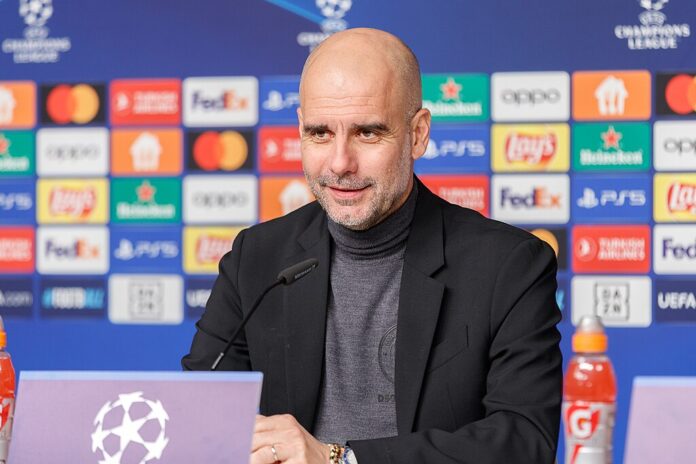Football without borders
Football is no longer confined to player transfers it has entered a new era of managerial globalization. Certain countries have turned coaching into an exportable asset, spreading their football philosophies worldwide. Argentina has emerged as a powerhouse in this domain, while European nations continue to disseminate their managerial styles across leagues and national teams. Yet, this phenomenon goes beyond tactics: cultural values, social structures, and personal resilience play a critical role in shaping globally successful coaches.
This phenomenon goes beyond tactics: cultural values, social structures, and personal resilience play a critical role in shaping globally successful coaches.
Argentina: philosophy, education, and courage in coaching
Systematic football education
In Argentina, football is more than a sport; it’s a way of life. Clubs and youth academies cultivate coaches not just in tactical knowledge but also in leadership, philosophy, and critical thinking. Legendary figures like Marcelo Bielsa emphasize mental discipline and problem-solving, training coaches to think as strategically as they manage.
Resilience and adaptability
Argentine coaches are renowned for their ability to adapt quickly to new environments. Beyond tactical acumen, they possess cultural and psychological resilience, enabling them to thrive under scrutiny and criticism. Their openness to change and adaptability often makes them valuable assets in international contexts.
Sociological advantages
- A culture of struggle: Football often serves as a vehicle for social mobility. Challenging economic realities encourage risk-taking and bold career decisions.
- Mentorship and collectivism: Argentine coaching networks emphasize mutual support, strengthening opportunities for career advancement.
- Global networks: Diaspora connections and international relationships help Argentine coaches establish themselves in Europe, North America, and Asia.
Notable Argentine coaches
- Marcelo Bielsa: Known for a philosophical and systematic approach; led Leeds United and Marseille.
- Mauricio Pochettino: Emphasizes youth development and pressing football; managed Tottenham Hotspur and PSG.
- José Pékerman: International representative of Argentine coaching; led Colombia and Venezuela national teams.
European coaching exports: culture meets strategy
Europe’s coaching exports combine tactical expertise with cultural capital, sending managers abroad who carry both footballing and sociological tools.
Spain
- Coaching presence: 56 Spanish coaches work in European leagues (2023/24 UEFA data).
- Sociological strength: Collective football philosophy and focus on player development ease adaptation abroad.
- Key figures: Pep Guardiola, Luis Enrique
Italy
- Coaching presence: Around 45 Italian coaches operate internationally.
- Sociological strength: Italian coaches integrate discipline and hierarchy into their management style, emphasizing leadership on and off the pitch.
- Key figures: Carlo Ancelotti, Antonio Conte, Vincenzo Montella (Turkey National Team)
Germany
- Coaching presence: German managers influence both club and national teams.
- Sociological strength: Organizational expertise combined with social discipline enhances adaptability.
- Key figures: Jürgen Klopp, Hansi Flick, Thomas Tuchel (England National Team)
Portugal
- Coaching presence: Active across Europe and Portuguese-speaking leagues.
- Sociological strength: Act as cultural bridges, facilitating success in varied social and footballing contexts.
- Key figures: José Mourinho, André Villas-Boas
The Balkans (Serbia, Croatia)
- Coaching presence: High international coach density relative to population.
- Sociological strength: Resourcefulness, resilience, and cost-effective problem-solving increase competitiveness.
- Key figures: Zlatko Dalić, Siniša Mihajlović
The sociology behind global coaching success
Both Argentine and European coaching exports highlight that tactical knowledge alone is insufficient. Social skills, cultural adaptability, and mentorship networks are equally essential. Collective cultures, risk-taking abilities, and strong professional networks are key factors that allow coaches to succeed internationally. Migration and diaspora links further facilitate the global mobility of coaching talent.
Tactical knowledge alone is insufficient. Social skills, cultural adaptability, and mentorship networks are equally essential.
Challenges and limitations
Even highly skilled coaches face hurdles:
- Cultural adaptation and short-term contracts can impede effectiveness.
- High numbers of foreign coaches may overshadow domestic youth development.
- Economic and social pressures can either empower or restrict adaptability, depending on individual circumstances.
The ideal international coach
Success in global football requires more than tactical knowledge it demands personal, social, and cultural intelligence. Essential traits include:
Tactical and technical mastery
- Quickly adapt to diverse leagues.
- Flexibly implement player development and team strategies.
Cultural awareness and language skills
- Respect local traditions and football culture.
- Multilingual ability strengthens communication and relationships.
Empathy and sociological insight
- Manage players from varied social and economic backgrounds.
- Build team cohesion, motivation, and a sense of belonging.
Courage and risk-taking
- Embrace working in different countries and challenging environments.
- Manage failure while maintaining continuous learning.
Networking and mentorship
- Cultivate strong connections with clubs, managers, and coaches.
- Mentor younger coaches to ensure long-term knowledge transfer.
Continuous development
- Stay updated on new tactics, training methods, and management strategies.
- Constantly refine both on-field and off-field leadership skills.
Conclusion: the cultural dimension of coaching globalization
The success stories from Argentina and Europe reveal that coaching exports are far more than numerical achievements. They are the product of education, philosophy, resilience, and social intelligence. Football, at its highest level, combines skill, strategy, culture, leadership, and societal awareness. Argentine and European coaches exemplify how the global game thrives not just on talent, but on cultural and sociological adaptability.

